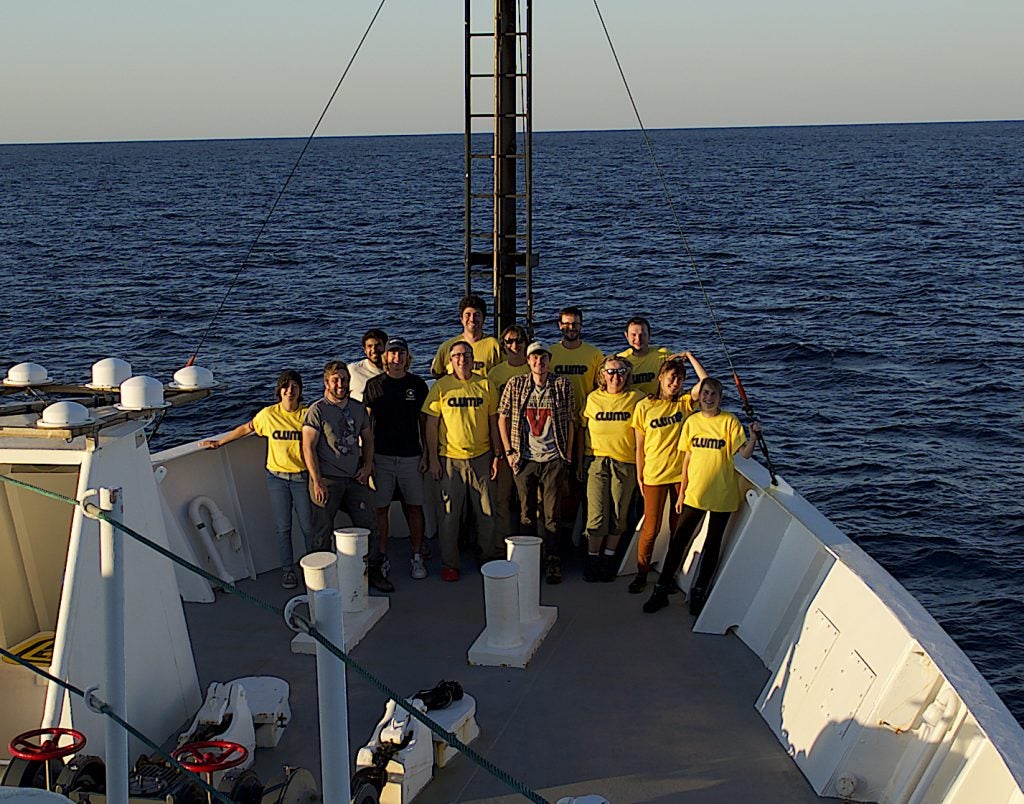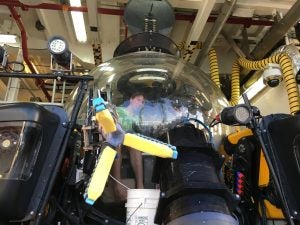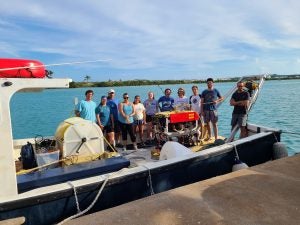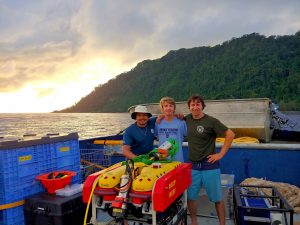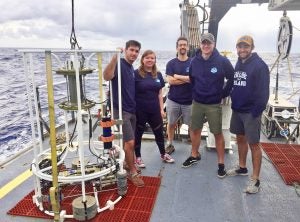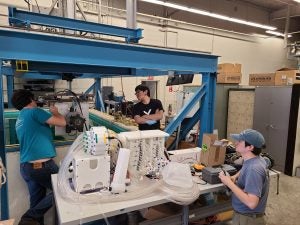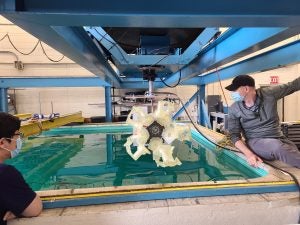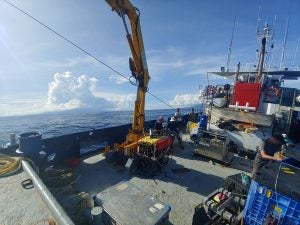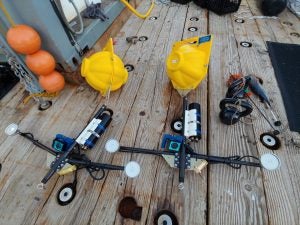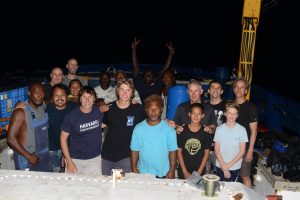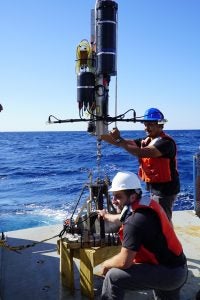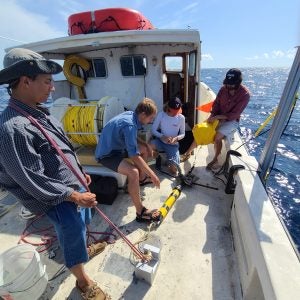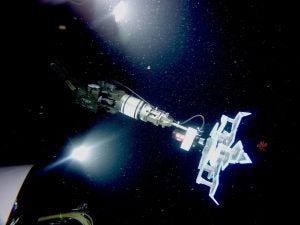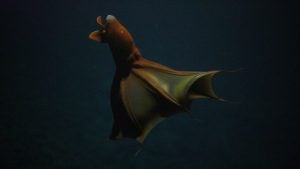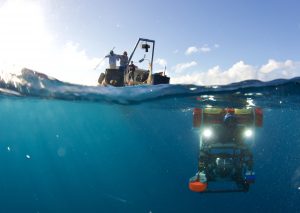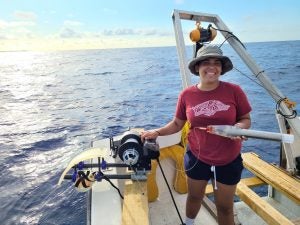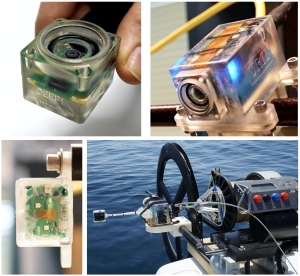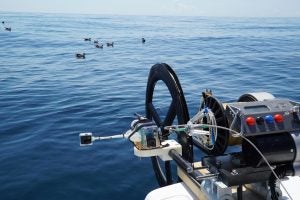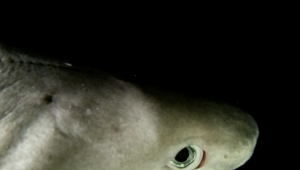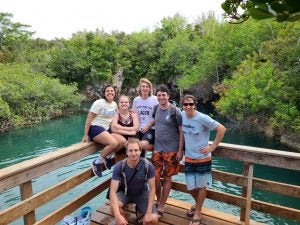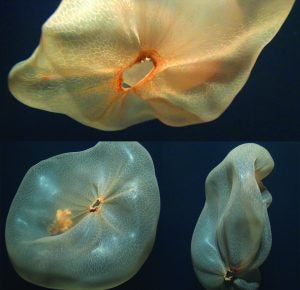We collaborated with Roxanne Beinart and Corinna Breusing (URI/GSO), Andrew Davies (URI/CELS Biological Sciences and Chris Roman (URI/GSO) for a Rhode Island Endeavor Program-funded expedition to collect chemosynthetic mussels at a cold seep site in Baltimore Canyon, USA. Using video-guided benthic grabs, we collected dozens of live, viable specimens. A fiber-optic heave compensated winch system was used to deploy benthic grab sample payloads outfitted with battery-powered equipment, including prototype DEEPi cameras.
DEEPi video of benthic grab collecting a sample at approx. 400m (video was livestreamed to surface via ethernet/fiber optic).
Imaging and sampling payload, shown with 3x DEEPi camera systems connected via wifi (directional antenna) inside a 1-atm housing. Lighting was provided by Juice Robotics SiteLites. The ethernet network was livestreamed to the surface using a fiber optic transceiver.
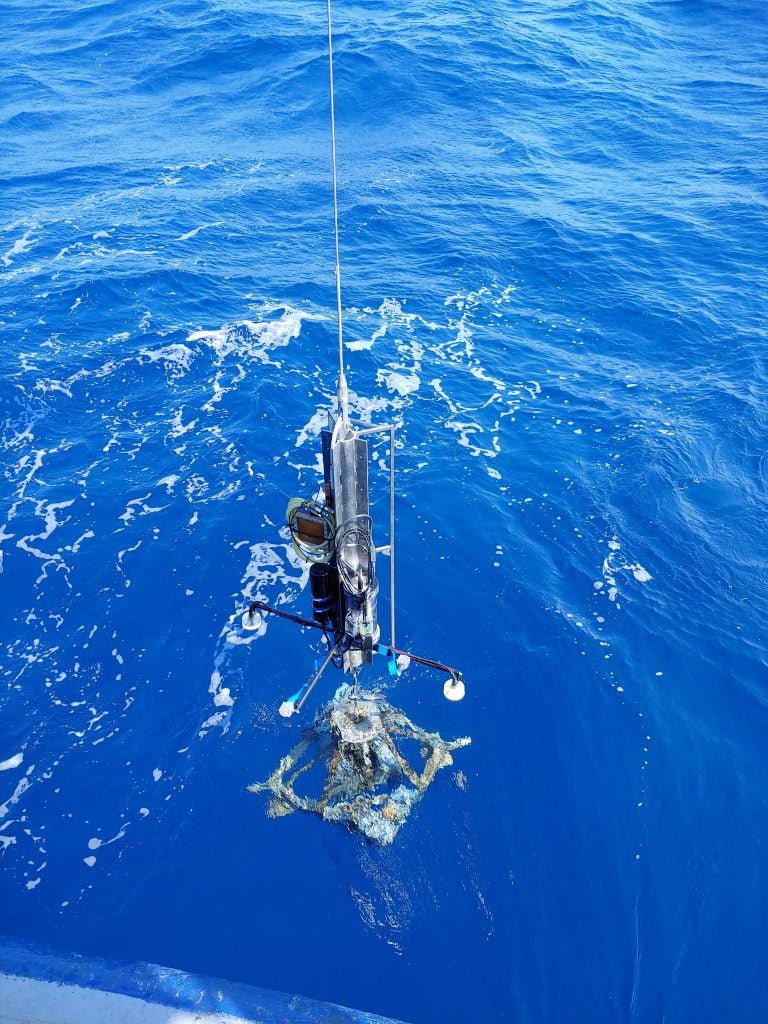
Compact form-factor electric heave compensated winch system. The winch has 3300m of 0.25″ diameter wire with 3x singlemode fiber optic passes.

PhD students Rhendy Sapiie and Russ Shomberg preparing the video/grab system for launch.
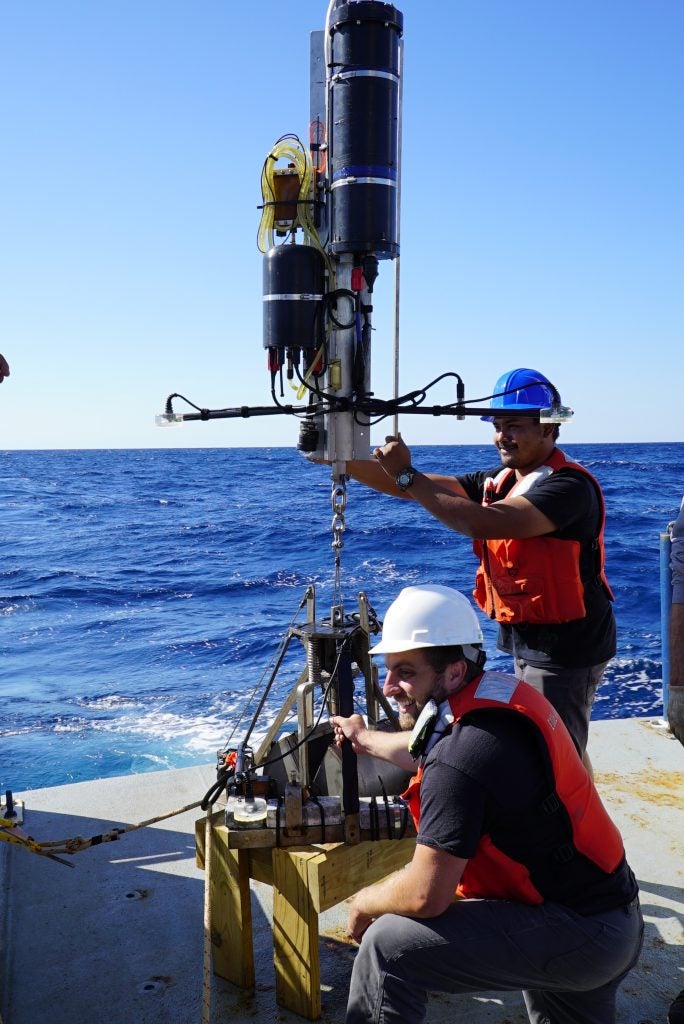
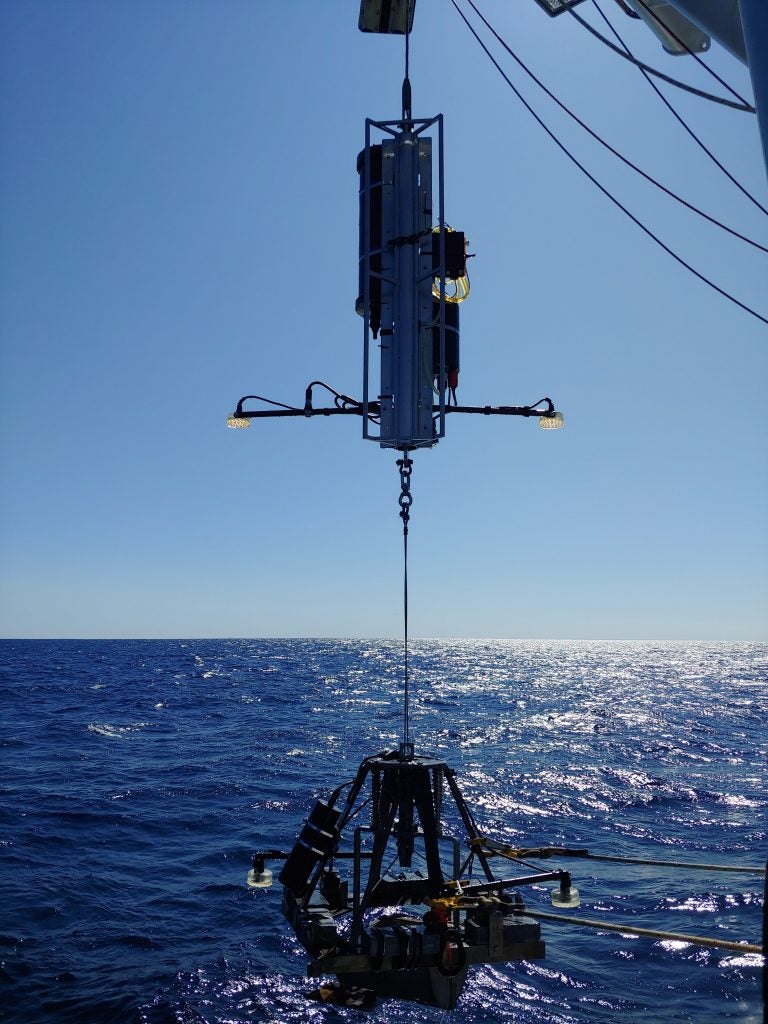
Thank you R/V Endeavor EN647 crew for an amazing cruise!
